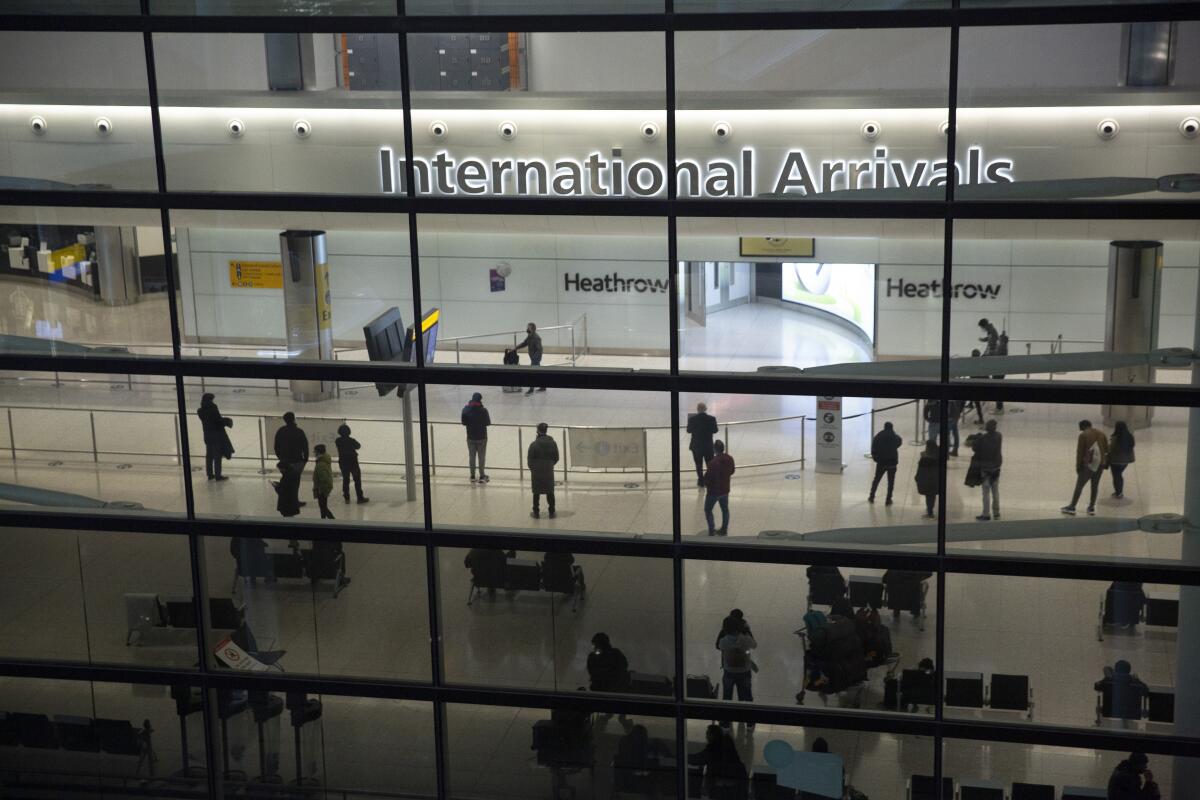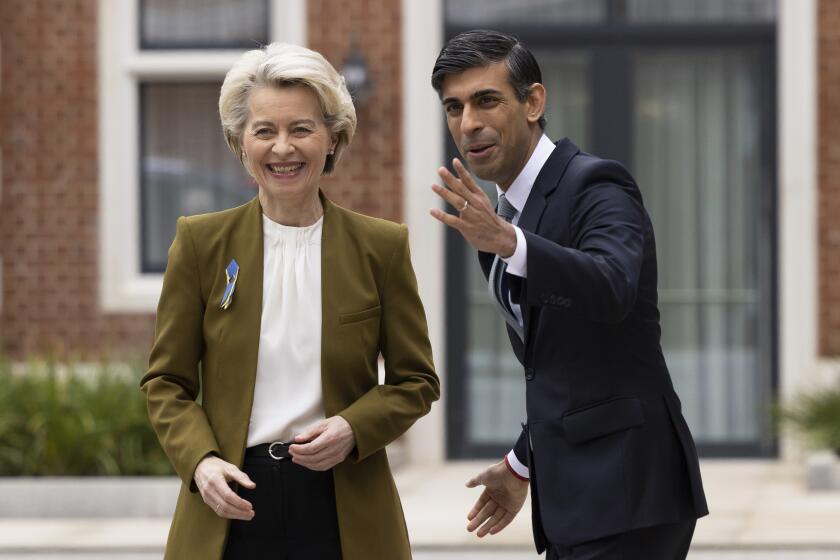Immigration to Britain hit a record high in 2022, renewing a Brexit-tinged debate

- Share via
LONDON — The number of people moving to Britain hit a record high of more than 600,000 in 2022, government figures showed Thursday, renewing debate about the scale of immigration and its effect on the country.
Net migration — the difference between the number of people arriving and those leaving — was 606,000 for the year, according to the U.K.’s Office for National Statistics.
The net figure is up from the 2021 tally of slightly fewer than 500,000. Britain’s total population is about 67 million.
The statistics office said the record level was due to a “series of unprecedented world events throughout 2022 and the lifting of restrictions following the coronavirus pandemic.”
It said the number of arrivals appeared to have leveled off in recent months.
As well as people coming to Britain to work, the figure includes tens of thousands of international students and more than 160,000 people who have arrived under special programs for people fleeing war in Ukraine and China’s clampdown in Hong Kong.
Prime Minister Rishi Sunak said the immigration figure was “too high,” but he did not say what an ideal number would be.
A new British law aimed at asylum seekers who arrive in small boats is the latest in a long line of efforts to control unauthorized migration.
“We’ve got to be sensitive to the needs of the [healthcare service], the economy, but fundamentally the numbers are too high — I’m bringing them down,” Sunak told broadcaster ITV.
The high figure revived debate about Britain’s departure from the European Union, which was motivated in part by the arrival of hundreds of thousands of people from across Europe in the years before the 2016 Brexit referendum.
Supporters of Brexit said leaving the EU — membership in which gives citizens of any EU nation the right to live and work in all the others — would allow Britain to control its borders.
Many who voted for Brexit thought immigration would fall, but the opposite has been true.
The U.K. still issues tens of thousands of work visas a year to fill jobs in hospitals, nursing homes and other sectors.
While the number of people moving to Britain from EU countries fell to 151,000 in 2022, the number from outside the bloc was 925,000, and India has overtaken European nations as the top source of workers.
Britain and the European Union finally reach a post-Brexit agreement that will allow goods to flow freely to Northern Ireland from the rest of the U.K.
Most economists say immigration is an economic boon to Britain, but some residents say new arrivals are putting more pressure on overstretched public services and worsening a national housing shortage.
The subject of immigration also gets conflated with the emotive issue of asylum seekers who arrive in Britain in small boats across the English Channel.
The government has taken controversial steps to try to halt the journeys, including a contentious and legally contested plan to deport asylum seekers to Rwanda.
Some lawmakers from the governing Conservative Party demanded tough new measures to curb immigration.
But Conservative lawmaker Alicia Kearns, who chairs Parliament’s Foreign Affairs Committee, warned against “knee-jerk reactions.”
She said net migration numbers shouldn’t include students, adding that Britain’s position as an “academic superpower” is very beneficial.
Kearns added that the country needs “to fill jobs wealth creators have made,” and that the U.K. has been proud to offer refuge to Ukrainians and residents of Hong Kong.
More to Read
Sign up for Essential California
The most important California stories and recommendations in your inbox every morning.
You may occasionally receive promotional content from the Los Angeles Times.












